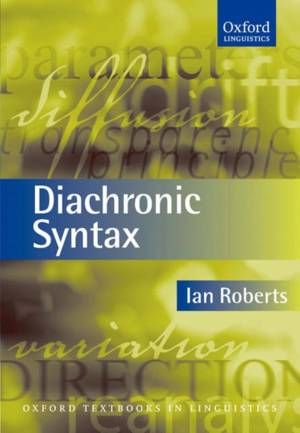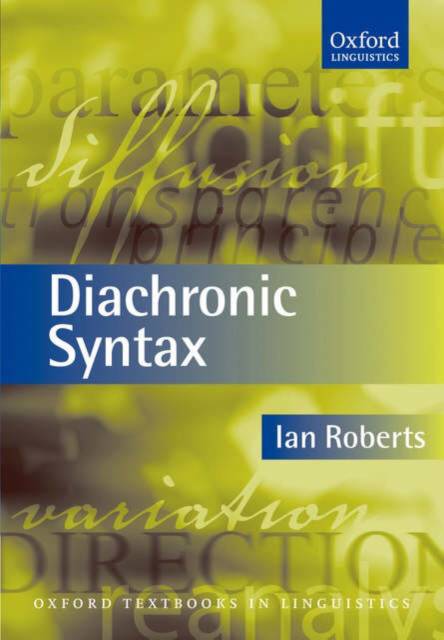
- Afhalen na 1 uur in een winkel met voorraad
- Gratis thuislevering in België vanaf € 30
- Ruim aanbod met 7 miljoen producten
- Afhalen na 1 uur in een winkel met voorraad
- Gratis thuislevering in België vanaf € 30
- Ruim aanbod met 7 miljoen producten
Zoeken
€ 69,95
+ 139 punten
Uitvoering
Omschrijving
This book shows how the generative approach to linguistics may be used to understand how languages change. Generative diachronic syntax has developed since the inception of the principles and parameters approach to comparative syntax in the early 1980s: it has become increasingly important in historical linguistics and generative theory, acting as a bridge between them and providing insights to both. Ian Roberts relates work in historical linguistics to contemporary work on universal grammar and historical syntactic variation. He explains how standard questions in historical linguistics - including word-order change, grammaticalization, and reanalysis - can be explored in terms of current generative theory. He examines the nature of the links between syntactic change and first-language acquisition and considers the short and long-term effects of language contact. Professor Roberts provides numerous examples from a range of different languages, guides to further reading, and a comprehensive glossary. This is the ideal textbook introduction for students of syntactic change.
Specificaties
Betrokkenen
- Auteur(s):
- Uitgeverij:
Inhoud
- Aantal bladzijden:
- 524
- Taal:
- Engels
- Reeks:
Eigenschappen
- Productcode (EAN):
- 9780199283668
- Verschijningsdatum:
- 1/03/2007
- Uitvoering:
- Hardcover
- Formaat:
- Genaaid
- Afmetingen:
- 175 mm x 246 mm
- Gewicht:
- 1047 g

Alleen bij Standaard Boekhandel
+ 139 punten op je klantenkaart van Standaard Boekhandel
Beoordelingen
We publiceren alleen reviews die voldoen aan de voorwaarden voor reviews. Bekijk onze voorwaarden voor reviews.











